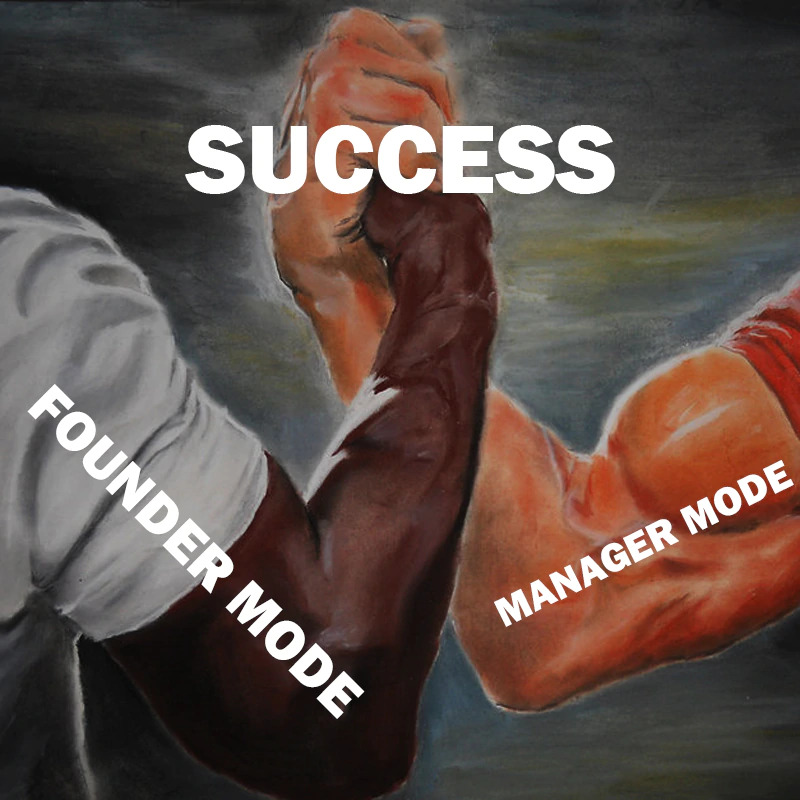Nothing stirs up the technology sphere like new products and groundbreaking innovations. But these alone cannot be achieved without a good leader.
A leader at a company plays several critical roles, including: vision setting, decision making, motivation and inspiration, problem solving, delegation and empowerment, culture building, performance management, stakeholder management, and more.
An effective leader is able to combine strategic thinking, empathy, and strong communication to drive a company toward success.
In the tech sphere, the managerial philosophies is quite different than most other industries.
And this is where the term 'founder mode' is coined by Y Combinator co-founder Paul Graham.

In a blog post on his website, Graham contrasts founder mode, where startup founders are deeply involved in daily operations, and 'manager mode,' which follows a business school approach of delegating to top talent.
Founder Mode: https://t.co/3hOnlKOJBi
— Paul Graham (@paulg) September 1, 2024
As companies grow, the standard advice is for founders to hire competent people, appoint them C-level roles, and give them room to manage the company through their knowledge and experience.
The advise is for founders to switch from founder mode to manager mode, and avoid micromanaging the company themselves.
But for Graham, an English-American computer scientist, writer, entrepreneur and investor, following this advice can sometimes be disastrous.
Graham said that owners of companies often receive advices that can be summarized as "hire good people and give them room to do their jobs."
" [...] judging from the report of founder after founder, what this often turns out to mean is: hire professional fakers and let them drive the company into the ground."
Graham has been in the tech business for decades, and that he's more than qualified to give advices to run companies.
He founded Y Combinator, a capital firm that has helped raised a lot of successful companies that include Reddit, Twitch (formerly Justin.tv), Xobni, Dropbox, Airbnb, and Stripe.
And here, he suggests that staying in founder mode, where the founder of company remains deeply involved in all aspects of the company, can lead to better outcomes.
Graham also criticizes venture capitalists and business schools for overlooking this concept.
In his blog post, Graham also points to Airbnb CEO Brian Chesky as a prime example of thriving in founder mode.
Under Chesky’s leadership, Graham suggests, Airbnb has achieved one of the best cash flow margins in the industry, despite stock fluctuations.
Long story short, Graham challenges the prevailing management culture of hiring "professional fakers" and makes the case for Steve Jobs-esque "founder mode."
Graham said that Chesky figured a better way to run his company other than hiring a professional, "partly by studying how Steve Jobs ran Apple."
The theme of Graham's statement is that, the conventional wisdom about how to run larger companies is mistaken.
But still, opinions vary, and that nobody can say exactly what founder mode looks like because every founder does it differently.
In other words, the "I came, I saw, I conquered" approach or the "trust and delegate" approach can be different for different companies.
It's worth noting that there are lots of other companies that thrive only after appointing someone else as CEO.
For example, Intel, founded by Gordon Moore and Robert Noyce, both of whom never served as the first CEOs. The role was taken up by Andy Grove, one of the key figures in Intel’s rise to dominance.
Another example is PayPal, founded by Max Levchin, Peter Thiel, and Luke Nosek, none of the three were the first CEO of PayPal. Confinity, which merged with Elon Musk’s company X.com, had Bill Harris and David Sacks as key leaders during its early years.
Then, there is YouTube, which was founded by Chad Hurley, Steve Chen, and Jawed Karim. Only Hurley took up the CEO role, while the other founders never served as CEO. YouTube only rose to significant prominence after it was acquired by Google.
